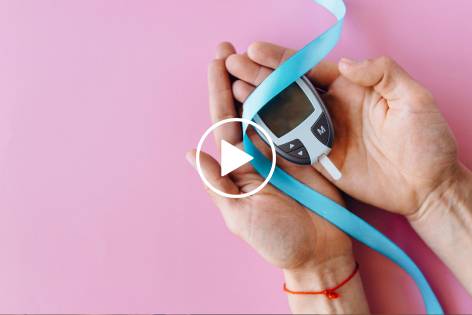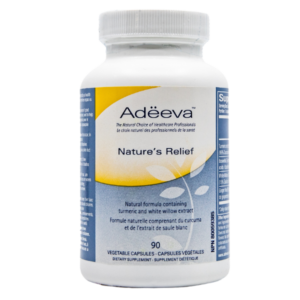
Ginger Supplementation Reduces High Blood Sugar, Insulin and HbA1c in type 2 Diatbetics
Source: J Nutrients (2024)
Lifestyle Medicine Update (April 3, 2024)
The incidence of diabetes was reported to be 382 million people worldwide, as of 2013, and the numbers have continued to escalate. Being overweight, as well as insufficient physical activity are two main drivers that have dramatically increased the incidence of this condition in the past few decades. In the meantime, researchers have been aggressively looking for natural solutions that can help to reduce high blood sugar levels (glucose), as well as other parameters related to diabetes and pre-diabetes, as poorly controlled blood sugar and related factors significantly increase the risk of heart attack, other vascular complications leading to gangrene and amputations, as well as many types of cancer, Alzheimer’s disease and the risk of more virulent, life-threatening infections. In other words, poorly controlled diabetes often leads to a shorter lifespan and a great deal of suffering and disability from the complications related to this condition. One of the natural agents shown to help reduce high blood sugar is the spice known as ginger. Ginger contains a number of active constituents shown to improve the ability of our cells to extract sugar (glucose) from our bloodstream. As a result, some impressive studies have shown that ginger supplementation significantly lowers blood glucose in many diabetic and pre-diabetic patients. As an example, a 2017 study published in the International Journal of Endocrinology and Metabolism showed that providing type 2 diabetic patients with 2,000 mg of a ginger supplement daily for 10-weeks lowered their blood sugar (glucose) by over 38 mg/dl, which is a very significant reduction. These patients also saw an improved LDL:HDL ratio, which also helps to reduce risk of heart and vascular disease. (1)
A 2024 meta-analysis, examining the efficacy of various herbs and spices on diabetes management (published in the journal Nutrients) showed that when you look at all the available studies, ginger supplementation is shown to significantly decrease not only blood sugar (glucose) in type 2 diabetics, but also their insulin levels and their HbA1c. HbA1c is a blood test, which looks at long-term blood sugar regulation (past 4 months) and is a very strong predictor of future complications and premature death from diabetes. Lowering the HbA1c with ginger supplementation is a very important finding, as you can appreciate. This meta-analysis also suggested that other herbs and spices can be beneficial in helping to reduce high blood sugar in type 2 diabetics, such as cinnamon, black cumin, turmeric (curcumin) and saffron. But only ginger reduced all three important diabetic markers – glucose, insulin and HbA1c.
I think that many type 2 diabetics and pre-diabetics should consider including a ginger supplement (2,000 mg) each day into their regiment to help improve their condition and reduce risk of diabetic complications. Remember that ginger is also shown to help reduce joint inflammatory conditions in human studies and it halts the growth of various cancers in experimental studies using human cancer cell lines. (3) For prevention reasons, I take a supplement each day that contains ginger, curcumin, white willow bark extract and Boswellia. Each of these ingredients help to prevent age-related inflammation and may block key steps in cancer development. The presence of ginger and curcumin in this supplement can also help to keep blood sugar (glucose) and HbA1c in a more desirable range.
I have included the references for this information in the text below.
References:
- Arzati M.M. et al. The effects of ginger on fasting blood sugar, hemoglobin A1c, and lipid profiles in patients with type 2 diabetes. Int J Endocrinol Metab. 2017, 15(4): e57927. https://www.ncbi.nlm.nih.gov/pmc/articles/PMC5750786/#:~:text=Another%20research%20indicated%20that%20consuming,HDL%20and%20LDL%20(19)
- Garza M.C. et al. Effect of aromatic herbs and spices present in the Mediterranean diet on the glycemic profile in type 2 diabetes: A systematic review and meta-analysis. Journal Nutrients. 2004, 16(6): 756. https://www.mdpi.com/2072-6643/16/6/756
- Nachvak S. M. Ginger as an anticolorectal cancer spice: A systematic review on in vitro to clinical evidence. Food Sci Nutr. 2023, 11(2): 651-660 https://www.ncbi.nlm.nih.gov/pmc/articles/PMC9922148/#:~:text=In%20vitro%20studies%20have%20shown,et%20al.%2C%202014).
Other Relevant References:
- Ginger, Cinnamon, Cumin Improve Glycemic Control. Medscape April 3, 2024. https://www.medscape.com/viewarticle/ginger-cinnamon-cumin-improve-glycemic-control-2024a10004zf?ecd=WNL_trdalrt_pos1_ous_240326_etid6399624&uac=342474MN&impID=6399624
- Huang F. et al. Dietary ginger as a traditional therapy for blood sugar control with type 2 diabetes mellitus. Medicine (Baltimore). 2019, 98(13): e15054. https://www.ncbi.nlm.nih.gov/pmc/articles/PMC6455977/
Eat Smart, Live Well, Look Great,
Dr. Meschino
Recommended Supplements

Dr. James Meschino
ABOUT THE AUTHOR
Dr. James Meschino, DC, MS, ROHP, is an educator, author, and researcher having lectured to thousands of healthcare professionals across North America. He holds a Master’s Degree in Science with specialties in human nutrition and biology and is recognized as an expert in the field of nutrition, anti-aging, fitness, and wellness as well as the author of numerous books.


